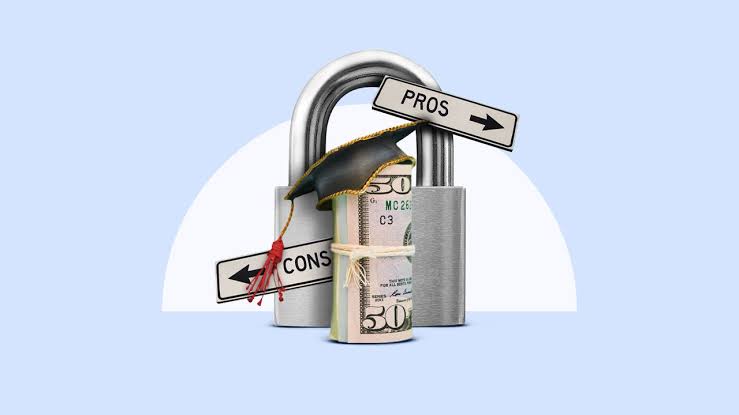When Private Student Loans Make Sense

The cost of higher education continues to rise, and many students find that federal financial aid is insufficient to cover all their educational expenses. For some, private student loans become a necessary part of their financial strategy. While not everyone needs to rely on private loans, certain circumstances make them a viable option. This article explores the types of individuals who might benefit from private student loans and the specific situations in which these loans can be particularly helpful.
Students Attending Private or Out-of-State Institutions
One of the primary groups of students who might need private student loans are those attending private or out-of-state institutions. These schools often come with a higher price tag than public in-state universities, and federal loans may not be enough to cover the full cost.
Higher Tuition Costs: Private universities typically charge higher tuition fees than public institutions. Even with scholarships, grants, and federal loans, students at these schools may still face a significant financial gap. Private student loans can help bridge this gap, ensuring that students can afford to attend their chosen institution without compromising their education.
Out-of-State Expenses: Students who choose to attend an out-of-state public university often face higher tuition rates than in-state residents. Additionally, living expenses, travel costs, and other fees can add up quickly. Private student loans offer a way to cover these additional costs, allowing students to pursue their education in a location that best fits their academic and personal goals.
Graduate and Professional Degree Seekers
Graduate and professional students are another group that frequently turns to private student loans. While federal loans are available for graduate studies, they often come with borrowing limits that may not cover the full cost of an advanced degree.
High-Cost Programs: Many graduate and professional programs, such as law, medical, and business schools, have high tuition and associated costs. These programs often require students to borrow more than the federal loan limits allow. Private student loans provide the additional funds needed to cover these expenses, enabling students to focus on their studies without financial strain.
Supplementing Federal Aid: Graduate students who have exhausted their federal loan options may need to supplement their financial aid package with private student loans. This is especially true for those pursuing degrees in fields with high earning potential, where the return on investment justifies the additional borrowing.
Students with Limited Access to Federal Aid
Not all students are eligible for the same level of federal financial aid. Some may have limited access to federal loans or may not qualify for enough aid to meet their needs. In these cases, private student loans can provide an essential source of funding.
International Students: International students studying in the United States often have limited access to federal financial aid. While some schools offer scholarships or work-study programs, these options may not be enough to cover the full cost of education. Private student loans, often with a U.S. co-signer, can help international students finance their education and achieve their academic goals.
Students with Prior Loan Defaults or Poor Credit: Federal loans generally do not require a credit check for undergraduate students, but previous loan defaults or poor credit can impact a student’s eligibility for certain types of federal aid, such as PLUS loans for parents or graduate students. Private student loans, while typically requiring a credit check, may still be an option for students who can secure a co-signer or demonstrate improved financial responsibility.
Students in Non-Traditional Programs: Some educational programs, such as certificate courses, online degrees, or part-time studies, may not qualify for federal financial aid. Students in these programs may need to turn to private student loans to finance their education, particularly if they are pursuing a career change or professional development.
Students Seeking Flexibility in Repayment
Private student loans offer different terms and conditions than federal loans, which can be beneficial for students seeking more flexibility in their repayment options.
Interest Rate Options: Unlike federal loans, which typically have fixed interest rates, private student loans often offer both fixed and variable rate options. Students with strong credit or a creditworthy co-signer may qualify for lower interest rates, making private loans an attractive option for those who want to minimize their interest payments over time.
Customizable Repayment Plans: Some private lenders offer more customizable repayment plans than federal loans, including options for making interest-only payments while in school or deferring payments until after graduation. This flexibility can help students manage their finances more effectively, particularly if they expect to have a higher income after completing their education.
Early Repayment Incentives: Certain private student loan providers offer incentives for early repayment, such as interest rate reductions or cash-back rewards. These incentives can make private loans a cost-effective option for students who plan to pay off their loans quickly.
Parents Helping to Finance Education
In some cases, parents may choose to take out private student loans to help finance their child’s education. While federal Parent PLUS loans are available, they come with their own set of requirements and conditions that may not be ideal for every family.
Lower Interest Rates: Parents with strong credit may find that private student loans offer lower interest rates than federal Parent PLUS loans. By opting for a private loan, parents can reduce the overall cost of borrowing and make the repayment process more manageable.
Flexibility in Loan Structure: Private student loans often provide more flexibility in terms of loan structure, allowing parents to choose repayment terms that align with their financial situation. This flexibility can be particularly beneficial for families with multiple children in college or those looking to minimize their monthly payments.
Co-Signing for Children: Parents may also choose to co-sign a private student loan for their child, helping them secure a better interest rate or qualify for a loan they might not be able to obtain on their own. Co-signing can also help the student build credit, which can be valuable when they apply for other forms of credit in the future.
Conclusion
Private student loans are a valuable financial tool for many types of students and their families. Whether attending a private institution, pursuing a graduate degree, or seeking more flexible repayment options, private student loans can provide the additional funding needed to achieve educational goals. While these loans offer significant benefits, it’s important for borrowers to carefully consider their options, understand the terms and conditions, and plan for repayment. By doing so, students can make informed decisions that support their academic success and long-term financial health.




